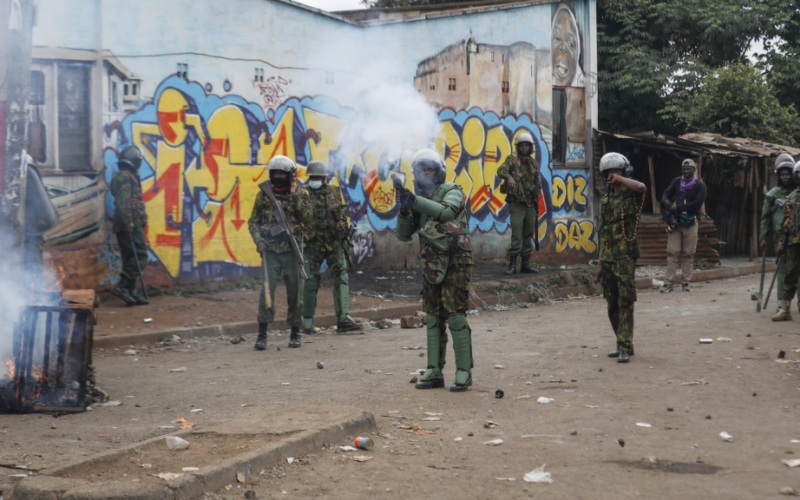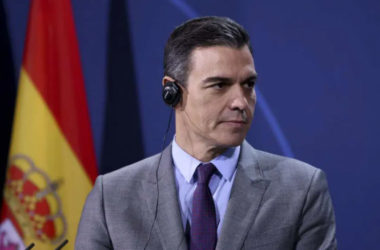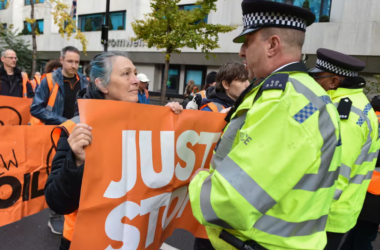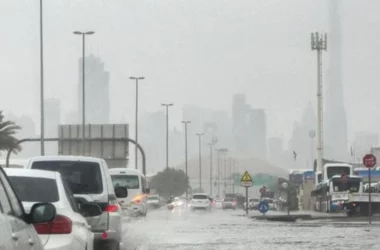Violent clashes erupted outside Kenya’s parliament on Tuesday as police opened fire on demonstrators attempting to storm the legislative building. At least five protesters were confirmed dead, with dozens more injured, and sections of the parliament building were set on fire amidst the chaos.
The unrest unfolded as lawmakers inside the parliament debated and passed a controversial finance bill aimed at raising taxes. This decision was met with fierce resistance from the public, who are already grappling with a severe cost-of-living crisis.
The protest initially began with a festival-like atmosphere but quickly descended into violence as the crowd swelled. Demonstrators overwhelmed police barriers, leading to intense confrontations. Tear gas and water cannons were deployed in an attempt to disperse the crowds, but when these measures failed, police resorted to live ammunition.
A Reuters journalist reported counting the bodies of at least five protesters outside the parliament. Vivian Achista, a paramedic on the scene, stated that the death toll could be higher, with at least ten reported dead. Another paramedic, Richard Ngumo, indicated that over 50 individuals had sustained gunshot wounds.
“We want to shut down parliament and every MP should go down and resign,” said Davis Tafari, a protester attempting to breach the parliamentary compound. “We will have a new government.”
The turmoil in Nairobi was mirrored in other cities and towns across Kenya. In Eldoret, President William Ruto’s hometown, police fired tear gas at demonstrators, causing businesses to shutter in anticipation of violence. Clashes were also reported in Mombasa, Kisumu, and Garissa, with police blocking major roads and using tear gas to disperse crowds.
In Nairobi, chants of “Ruto must go” and songs in Swahili calling for a government overhaul filled the air, punctuated by the sound of police gunfire and tear gas canisters.
Inside the parliament, lawmakers proceeded to approve the finance bill, moving it to a third reading. The bill, which aims to raise an additional $2.7 billion through new taxes, is part of a broader effort to manage Kenya’s debt crisis. With interest payments consuming a significant portion of the country’s annual revenue, the government argues that these measures are essential to fiscal stability.
However, public backlash has been fierce. The proposed tax hikes come at a time when many Kenyans are struggling with economic hardships exacerbated by the COVID-19 pandemic, the war in Ukraine, and consecutive years of drought. Concessions by the government, such as the removal of new taxes on essentials like bread and cooking oil, have done little to placate the anger.
The protests reflect growing discontent with President Ruto, who campaigned on a platform of supporting Kenya’s working poor but has faced criticism for failing to alleviate economic pressures. Opposition parties boycotted the parliamentary vote, vocally rejecting the bill and calling for the government’s resignation.
The Ministry of Finance has warned that any amendments to the bill could result in a substantial budget deficit, necessitating further tax increases or spending cuts.
Hussein Ali, an 18-year-old protester, encapsulated the sentiment of many demonstrators: “They are budgeting for corruption. We won’t relent. It’s the government that is going to back off. Not us.”
As tensions remain high, the international community is closely watching Kenya’s unfolding crisis, concerned about the implications for regional stability and governance.
Tuesday’s events mark a significant escalation in the ongoing protests against Kenya’s government, with a rising death toll and widespread injuries. The approval of the finance bill amidst such turmoil underscores the deepening divide between Kenya’s government and its people, with the potential for further unrest as the situation develops.








